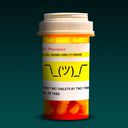FDA signals watered-down standards with Alzheimer's drug approval

Following the FDA's approval of Biogen's Alzheimer's treatment Aduhelm, experts fear the approval — based on weak scientific data — is a sign the agency is putting speed over rigor.
The big picture: "A general signal being sent to the rest of the drug industry is: If you can get uncertain, maybe suggestive data and a post-hoc analysis — get that threshold to us — we may approve your drug," said Peter Bach, a drug researcher at Memorial Sloan Kettering Cancer Center.
Where things stand: The FDA has not been shy in recent years about touting the quantity of drugs it approves.
- But Alzheimer's has been different. So many drugs have failed, and patients and families are desperate for any treatment.
- In 2018, the FDA issued guidance to ease standards and definitions for clinical trials involving potential Alzheimer's treatments. The agency encouraged companies to "discuss their plans with FDA early in development."
- The Aduhelm decision within the policy community was nearly unanimously panned as a mistake. But it had support among patient advocates and some physicians, most of whom have financial ties to Biogen and Eisai, a company that also developed the drug.
- "There are very compelling arguments about the magnitude of unmet need [for Alzheimer's], but these shouldn't trump regulatory standards," said Caleb Alexander, a drug researcher at Johns Hopkins who sat on the FDA's advisory committee for this drug and argued it should not be approved.
The bottom line: The FDA is green-lighting an IV drug that has not proven to be better than a placebo, carries a risk of brain swelling and hemorrhages, requires patients to undergo a lifetime routine of imaging scans and doctor visits, and is based on a hypothesis of brain plaques that is losing scientific credence.
- The FDA also did not limit the drug to Alzheimer's patients who have mild dementia, even though those were the patients who were studied in trials.
Looming concerns: Experts believe opening the door to unproven treatments like Aduhelm could water down the FDA's standards for other serious conditions that similarly lack drug options.
- Biogen must run a confirmatory trial at some point to test the drug's effectiveness, but mandating post-approval trials also has pitfalls, as companies have no incentive to run them.
- Biogen's CEO told CNBC the company has "up to nine years to deliver the final results of the study."
Our thought bubble: The FDA said in its approval that, "hopefully, we will see further evidence of benefit in the clinical trial and as greater numbers of people receive Aduhelm."
- Typically, America's drug regulator would have that evidence instead of saying it will "hopefully" pan out.